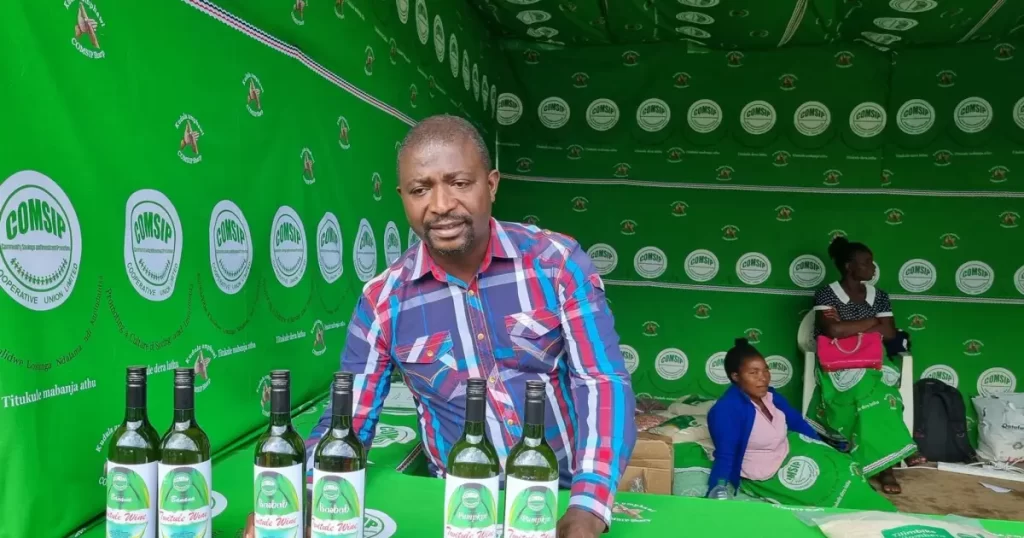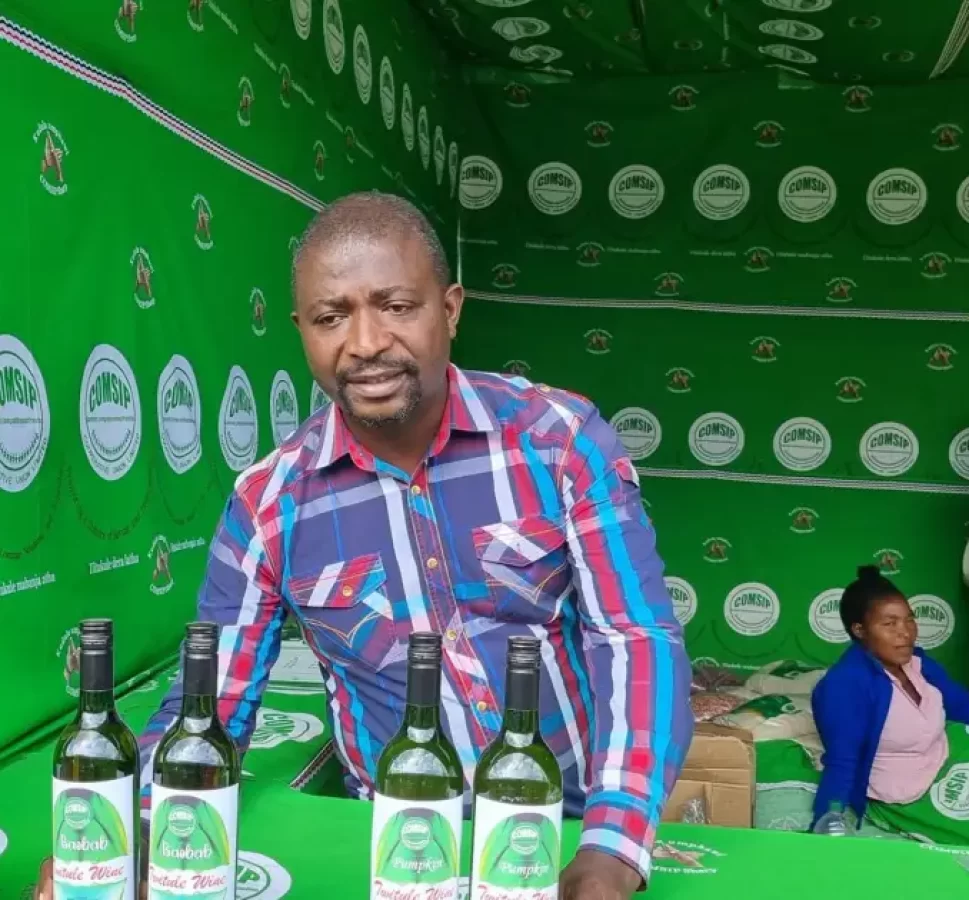
Global warming has shrunk crop yields in farming communities. Some have poured their frustration into making wine.
Karonga, Malawi – Regina Mukandawire has been growing bananas on her small farm in the Karonga district in northern Malawi for more than 16 years. But heatwaves, floods and disease outbreaks that have hit the country since 2010 have gradually reduced her yields from half a tonne to only a few buckets per harvest.
“If it’s extremely hot, ripe bananas will quickly rot, meaning you won’t be able to sell them,” the 38-year-old mother of six told Al Jazeera. “Again, when floods happen, the trees are affected, and heavy storms can actually destroy a whole farm.”
Malawi is suffering some of the worst impacts of climate change despite being one of the world’s lowest emitters of greenhouse gases. The dry spell caused by the El Nino weather phenomenon during the 2016-2017 season also left a third of the country’s 18 million people in dire need of food assistance.
Two years later, when Cyclone Idai hit, small businesses incurred $20m in losses, and two million people were pushed into extreme poverty, says Mathews Malata, co-chairperson for the Movement for Environmental Action, a Lilonge-based advocacy group.
That impact has continued today, he told Al Jazeera.
“Malawi is losing up to 33 tonnes of soil per hectare due to environmental damage as well as floods and other weather conditions,” he said.
One crop that has been seriously affected by extreme weather is banana, Malawi’s fourth biggest staple crop after maize, rice, and cassava. With temperatures sometimes reaching 43 degrees Celsius (109 degrees Fahrenheit), bananas are often in a messy state by the time of harvest.
Frustrated by repeated losses, a group of four men and 30 women from Mlare village started making wine using overripe bananas that they grew or bought from other farmers.

Turning bananas into wine
The group began in 2012 as the Twitule Cooperative, a small group of farmers meeting in Muchenjeli, Karonga, with founding members like Mukandawire. However after training by the COMSIP Cooperative Union, a bigger cooperative, its mission and importance have evolved.
“The project is a source of livelihood for this community and stands as a testimony of how communities in Malawi are fighting the effects of climate change,” said Mercy Chaluma, a representative for COMSIP.
The group says it is able to sell its sweet-tasting alcoholic beverage in other districts in the country and they are also attracting interest from consumers in neighbouring countries like Zimbabwe, Zambia, and Tanzania.
The farmers have no sophisticated equipment, and their winery production plant is a small room with neither electricity nor running water. Workers use 20-litre (5.3-gallon) and 50-litre (13.2-gallon) plastic buckets that serve as mixing and storage jugs.
Twitule winery chairperson Vyanitonda Kasimba said those who work in the winery are members of the cooperative. The group produces a minimum of 50 bottles per day and sells them for 3,000 kwacha ($1.78) per bottle.
“The cooperative does not have a wine bottling facility, so COMSIP Union purchases wine in bulk from them and facilitates improved bottling that is appealing and helps them with marketing that attracts high prices,” she said.
In a country where more than half the population lives in poverty, the revenue has come in handy. Mukandawire, whose husband is unemployed, has become her family’s breadwinner through proceeds from the wine business.
“Being a member of Twitule wine production helped me to construct better housing structures at my home. I am also able to send my children to school with proceeds from the project,” she said.
Another group member, Evelyn Mwabungulu, has ventured into raising goats using proceeds from the wine project. She started with one goat but now has 14.
“When I sell them, I manage to meet the needs of my family, especially taking my kids to better schools. I am now looking forward to upgrade into cattle farming,” she said.
Surmounting challenges
The production of banana wine has not been without its challenges. Most customers prefer their wine cold, but lack of electricity made the group’s refrigerator useless. So it found a makeshift solution: digging a 5-metre-deep (16ft-deep) pit instead.
“We use a thermometer to measure the temperature inside the pit before placing the wine,” Mukandawire explained.
Al Jazeera saw documents showing that the cooperative made the required payments to the Electricity Supply Corporation of Malawi (ESCOM) in May 2021, but the community has not yet been connected to the national grid.
ESCOM spokesperson Kitty Chingota said climate change had contributed to the delay.
“The devastating effects of cyclones and other destructive weather patterns usually uproot and vandalize electricity infrastructure. This means the utility will have to spend more resources on repairs at the expense of other projects. Again, the issue of inflation is at play. We import most of our equipment, but the kwacha-dollar exchange rate, for example, is a huge setback,” Chitonga said.
Al Jazeera noticed pipes installed by the water board from the main reservoir to the area, but the cooperative still doesn’t have water. Efforts to reach the board for comment were unsuccessful because telephones went unanswered.
Twitule wine’s popularity in and beyond Malawi’s borders is on the rise, and it has passed pre-certification tests by the Malawi Bureau of Standards, so it is considered suitable for consumption. However, the agency has yet to officially approve the product and, by extension, commercial-scale sales.
“There have been endless suggestions from the bureau to the cooperative on what they should do to be certified, and most of these have been followed. … Currently, the cooperative is awaiting another visit from the bureau to see if certification will now be granted,” Chaluma said.
For now, the group has stuck to showcasing the wine at trade fairs. It also sells informally through COMSIP to retail shops and at hotels while waiting for the certification to boost revenues.
Monica Khombe, spokesperson for the Malawi Bureau of Standards, declined to talk to Al Jazeera, saying she had no time to compile information about the delayed approval.

‘We will keep pushing’
Environmental activists have bemoaned the continuing effects of climate change, saying even as the communities are adapting, the effects are still adversely affecting full-scale production of banana wine or use of the crop for other purposes.
Some like Malata have urged the government to do more in supporting groups like Twitule.
“Banana-growing farmers need to be introduced to drought-tolerant varieties to lessen the impact of extreme weather patterns on the crop,” Malata said.
Since delving into wine production, Twitule has managed to acquire a farm specifically for banana farming, but heavy rains destroyed its crop.
Still, its members are determined to try again.
“We will keep pushing until we transform this whole community through banana wine production. We want to produce wine that can be consumed as far as Europe and America,” Mukandawire said.






